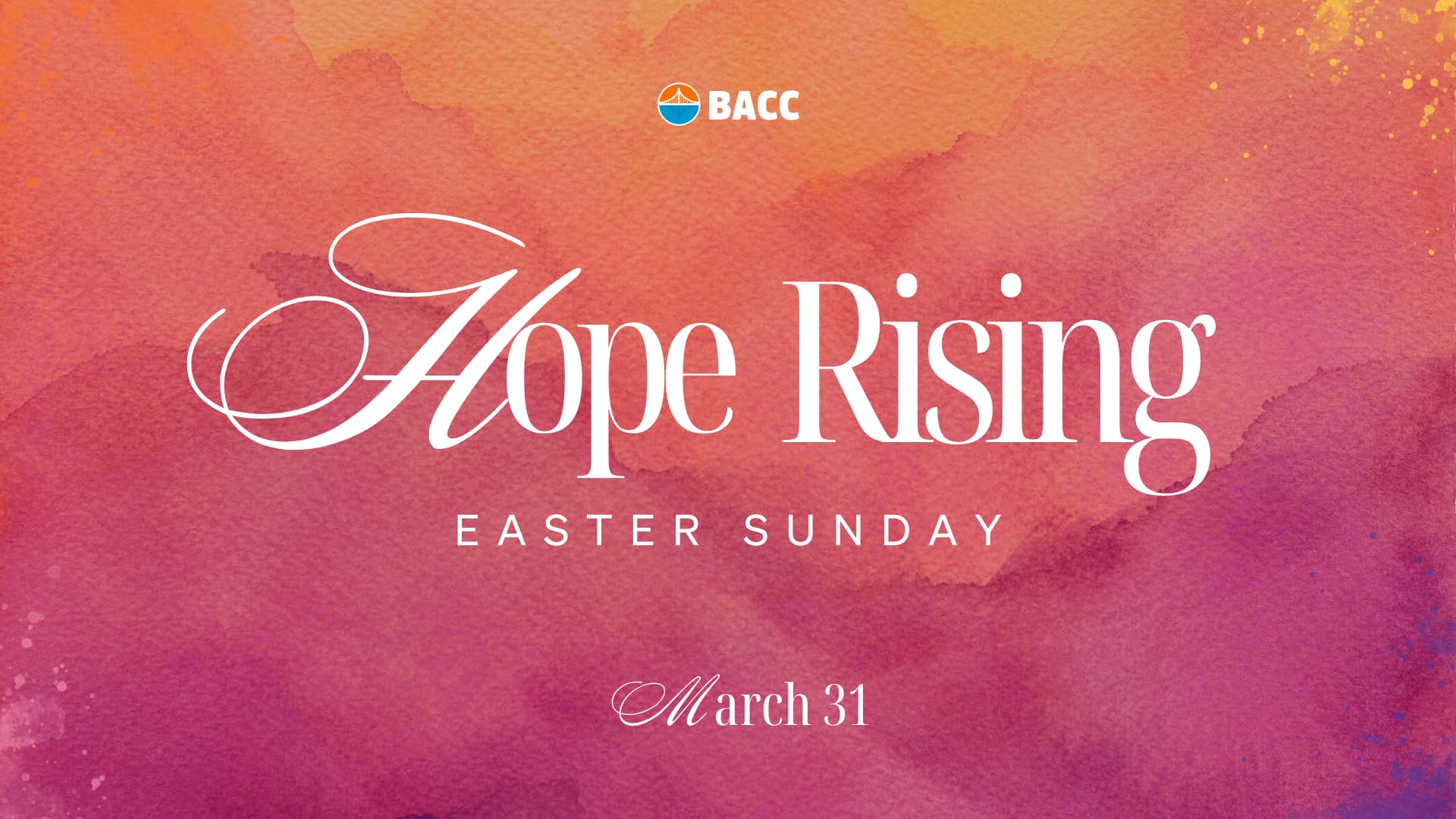Sign up for The Good Stuff
Our weekly newsletter filled with news, updates, and inspiring stories of how God is working in the Bay Area.
"*" indicates required fields
Sign up for The Good Stuff
Our weekly newsletter filled with news, updates, and inspiring stories of how God is working in the Bay Area.
"*" indicates required fields
It’s hard to make changes alone; think of how much more motivated you are to go to the gym when you are training together with a friend. Friends make time pass more quickly, commiserate as they share your pain, and encourage you to never give up.
As we look forward to our “Second Act,” one of the most important things we can do is look at how we build friendships, because we will need a strong and close group of friends around us if we really want to grow. So how do you build these relationships? If you tend to have a hard time with this, have no fear – relationships are very hard for me, but luckily the Bible has a lot of wisdom that, if followed, will immediately improve our relationships.
Don’t get me wrong – relationships take work, and I don’t think there are quick fixes in this area. But I do think there are a few things we just tend to skip over expressing to each other – I know I do. If these things are left unsaid, our relationships will be wrought with insecurity and distance, no matter how much time we spend together.
Which of these conversations tend to be missing from your friendships?
1. “I need you.”
12 See to it, brothers and sisters, that none of you has a sinful, unbelieving heart that turns away from the living God. 13 But encourage one another daily, as long as it is called “Today,” so that none of you may be hardened by sin’s deceitfulness.
Hebrews 3:12-13 (NIV)
The Bible says that daily encouragement from friends is actually a need, not just a nice idea. Just like food and water and oxygen are a need, so are daily encouraging conversations from faithful friends. Without these talks, we will be hardened, deceived and unbelieving.
Do you believe that you need friends just as much and just as often as you need food and water? If you do, you will express need to your friends. When we won’t express need to our friends we will usually end up bitter and frustrated that they don’t seem to anticipate our needs. For example, maybe you feel lonely deep down and need someone to talk to, but feel frustrated that your friends don’t seem to care. The truth is they can’t read your mind and don’t know you’re lonely unless you tell them.
What do you need help with in your life? Do your close friends know how to help you? Express to a friend today one thing you’re burdened by and ask them for help.
2. “I really admire how you ….”
29 Do not let any unwholesome talk come out of your mouths, but only what is helpful for building others up according to their needs, that it may benefit those who listen.
Ephesians 4:29 (NIV)
It’s crazy how rarely we take time to express what we appreciate and admire about people around us. I know I tend to spend way more energy on what is not going well than I do on appreciating what is going well.
One big sign that you’re not expressing enough admiration and gratitude is the level of envy and jealousy you feel in your relationships. Envy is a sign that you see something in someone else that you wish you had. The problem is envy doesn’t help anyone – including yourself:
A peaceful heart leads to a healthy body;
jealousy is like cancer in the bones.Proverbs 14:30
One way to stomp jealousy out of your life is to express to people around you what you appreciate about them and try to learn from them. They’ll feel happier, and you will too.
3. “I forgive you.”
15 Look after each other so that none of you fails to receive the grace of God. Watch out that no poisonous root of bitterness grows up to trouble you, corrupting many.
Hebrews 12:15 (NLT)
Bitterness is an instant relationship killer. It’s poisonous, and the Bible says it starts small like a root and then grows up to cause trouble. Bitter people blame God, their circumstances, and people around them. They tend to have a victim mentality, they complain a lot, and they are hard to be around.
So how do you get rid of bitterness? You can’t change how people have treated you. But the Bible teaches that bitterness actually isn’t a result of how people have treated you; bitterness is a sign that you are too proud to take responsibility for your own choices and you want other people to be God for you. When they can’t live up to that, you blame them for all your problems. Taking responsibility is empowering, you never have to be a victim of your circumstances.
Decide today to talk to God about the things in your life you need forgiveness for. Receiving forgiveness for yourself will automatically erase all bitterness in your life, no matter how big.
4. “I’m sorry.”
Always be humble and gentle. Be patient with each other, making allowance for each other’s faults because of your love.
Ephesians 4:2 (NLT)
One of the keys to building better relationships is always being humble. Humble people are willing to see that they may have done something wrong. They understand they are not perfect and are willing to learn. Humble people are refreshing to be around because they are gentle and patient, not easily angry. You know you can make mistakes and they will make allowance for your faults because they know they have their own.
Would your friends describe you as “always humble”? True humility is a reflection of our relationship with God; if you are humble with God about who you really are, and how much help you need, you’ll naturally be humble with people around you no matter how they treat you. If you’re not humble with God, you won’t be humble with people no matter how hard you try, because people are imperfect and eventually your patience will run out.
What practical decision can you make to be more humble with God and people around you?
5. “I want to be there for you.”
Don’t look out only for your own interests, but take an interest in others, too.
Philippians 2:4 (NLT)
Sometimes our friendships suffer because we don’t take much time to consider other people’s interests. Do you tend to think first about what you need, or what your friends might need? Do you consider what your spouse, roommates, family or friends might need without them telling you? Do your friends feel like you will be there for them when they need you?
You will immediately improve your relationships by being thoughtful and considerate of what people need. That doesn’t mean to ignore your own life and needs, but to spend more time considering others just like you would want for yourself. Drop off something nice, write a card, or just ask about how something in their life is going.
Which of these 5 conversations do you need to have more with people around you? Which are hardest for you, and which tend to be easier? You may be stronger at expressing some of these things more than others. Pick one type of conversation to have this week and start working on improving your relationships!

Written by
Amy Query
Amy Query is an editor of BACC Inspire and avid reader. She studied psychology at the University of California, Berkeley, and has over a decade of experience in mentoring, counseling and community organizing.
We can change people’s lives through relationships, spirituality, and meeting needs, says our Executive Minister on CBN News
Join women from around the Bay Area for a night of inspiration and friendship.
We do Easter big around here—and with good reason!


